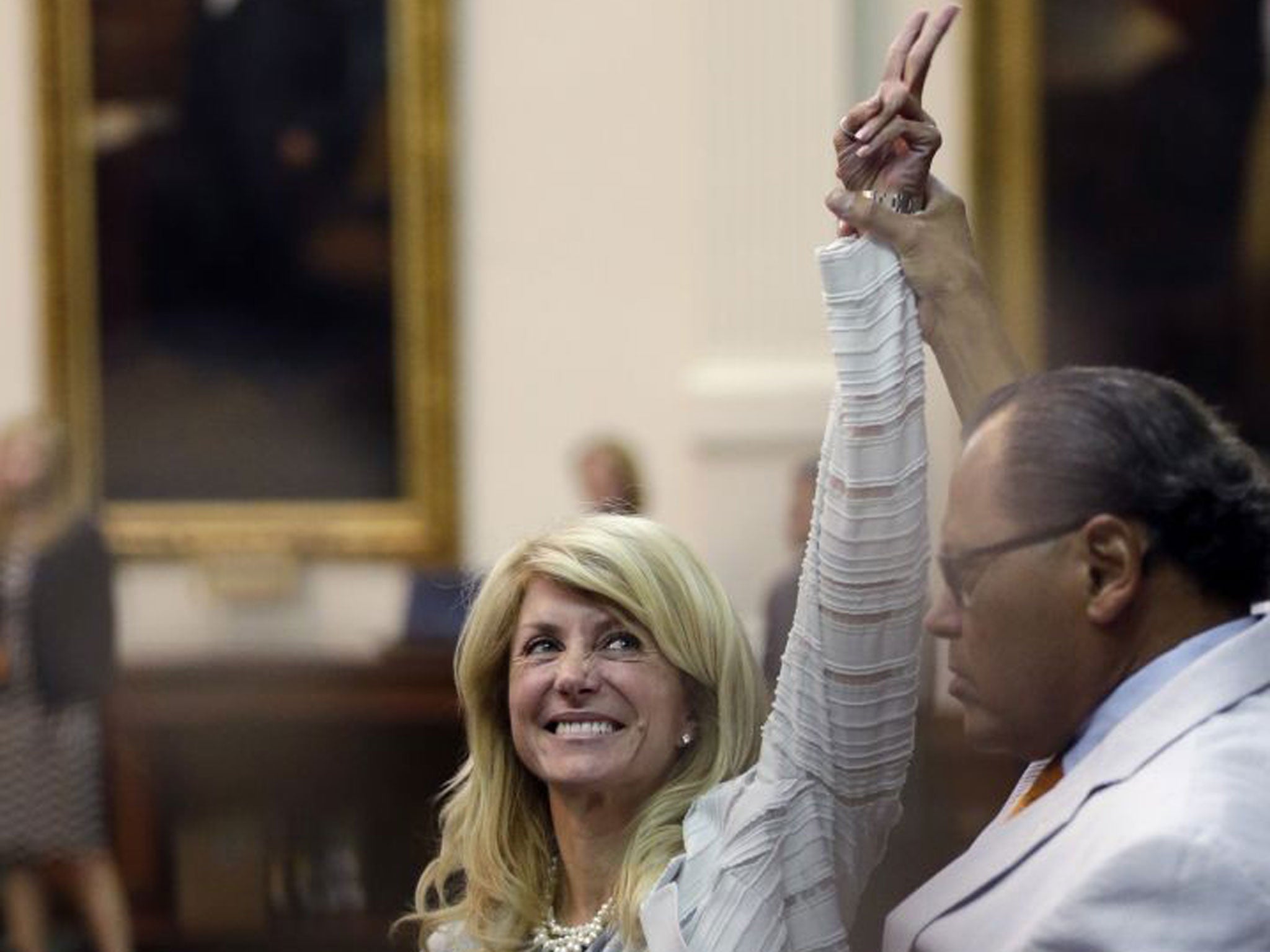Texas governor Rick Perry mounts new bid for abortion restrictions after Wendy Davis filibuster blocked bill
The governor has now called for another special legislative session to reconsider the proposal

Your support helps us to tell the story
From reproductive rights to climate change to Big Tech, The Independent is on the ground when the story is developing. Whether it's investigating the financials of Elon Musk's pro-Trump PAC or producing our latest documentary, 'The A Word', which shines a light on the American women fighting for reproductive rights, we know how important it is to parse out the facts from the messaging.
At such a critical moment in US history, we need reporters on the ground. Your donation allows us to keep sending journalists to speak to both sides of the story.
The Independent is trusted by Americans across the entire political spectrum. And unlike many other quality news outlets, we choose not to lock Americans out of our reporting and analysis with paywalls. We believe quality journalism should be available to everyone, paid for by those who can afford it.
Your support makes all the difference.Texas Senator Wendy Davis made world news this week, as she delivered a marathon 10-hour speech on the floor of the state capitol in a bid to block the passage of an anti-abortion bill.
The Fort Worth Democrat stood upright in pink running shoes for the duration of her filibuster attempt on Tuesday, for which she was forced to forego food, water or loo breaks.
Yet now it appears her efforts may have been in vain: on Wednesday, Texas Republican governor Rick Perry called a special legislative session for 1 July, to force through the controversial bill to ban abortions in his state after 20 weeks of pregnancy. “Texans value life and want to protect women and the unborn,” Governor Perry said in a statement. “We will not allow the breakdown of decorum and decency to prevent us from doing what the people of this state hired us to do.”
Davis, once a teenage mother who went on to earn a Harvard Law degree, argued that it was Perry and Texas Lieutenant Governor David Dewhurst who had “led the charge in terms of a breakdown of decorum.” Speaking to MSNBC, she said, “They have overridden and made a mockery of all of the rules we run by in this state.”
Its critics say the Republican-backed bill would close almost every abortion clinic in Texas, and impose sweeping restrictions on the procedure. Similar 20-week bans have already been passed in 12 US states, though courts have blocked the controversial legislation in three of the 12: Arizona, Georgia and Idaho. Acknowledging that the bill would likely garner sufficient votes to pass in the new session, Davis said she was nonetheless glad to have brought the issue to people’s attention. “They may roll over us. They probably will, but they underestimate the consequences of doing so,” she told the Dallas Morning News. “We’re still going to fight with every fibre that we have.”
Republicans managed to bring Davis’s lengthy filibuster to an end around two hours before the bill’s deadline at midnight on Tuesday. Lieutenant Governor Dewhurst halted her speech, claiming she had strayed off-topic, and had received unauthorised assistance fitting a back-brace to help her stay upright. But her vocal supporters on the floor and in the public gallery disrupted proceedings sufficiently to block the vote in the dying minutes of the session.
Davis’s actions earned her praise from Democrats in the US Senate, 31 of whom signed a letter thanking her for her “courage and determination in defeating… a bill that would have severely limited women's reproductive choices in Texas… Thanks to your dedication, Texas and the rest of the country will rethink efforts to enact similar laws.”
US Senators who wish to enact a filibuster have a somewhat easier task than Davis and her fellow state senators. Anyone who wishes to block a bill or motion in the US Senate can simply state their intention to launch a filibuster; those proposing the bill or motion must then achieve 60 or more of the 100 available votes – a so-called “super-majority” – to continue.
Join our commenting forum
Join thought-provoking conversations, follow other Independent readers and see their replies
Comments